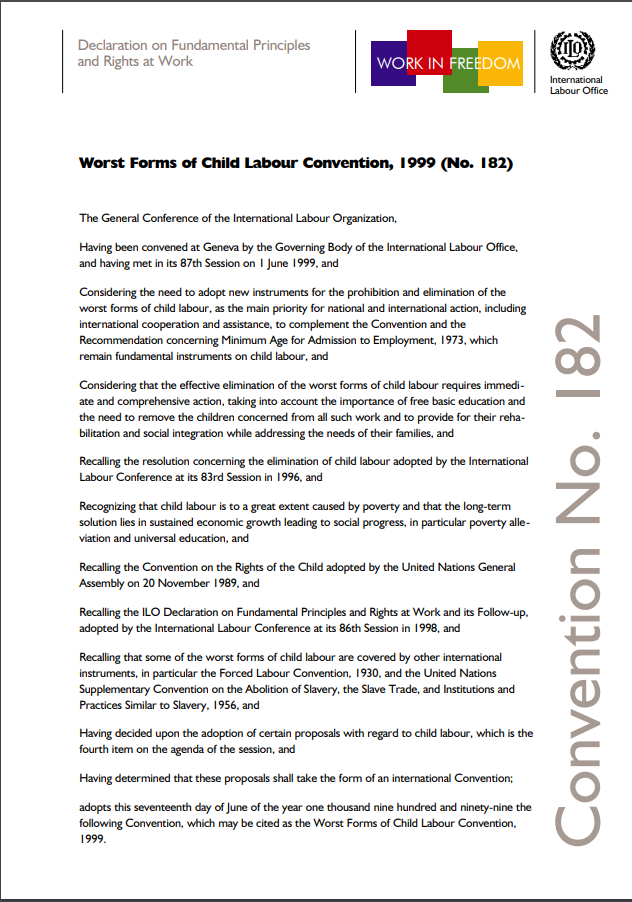This fundamental convention defines as a “child” a person under 18 years of age.
It requires ratifying states to eliminate the worst forms of child labour, including all forms of slavery or practices similar to slavery, such as the sale and trafficking of children, debt bondage and serfdom and forced or compulsory labour, including forced or compulsory recruitment of children for use in armed conflict; child prostitution and pornography; using children for illicit activities, in particular for the production and trafficking of drugs; and work which is likely to harm the health, safety or morals of children.
The convention requires ratifying states to provide the necessary and appropriate direct assistance for the removal of children from the worst forms of child labour and for their rehabilitation and social integration. It also requires states to ensure access to free basic education and, wherever possible and appropriate, vocational training for children removed from the worst forms of child labour.

